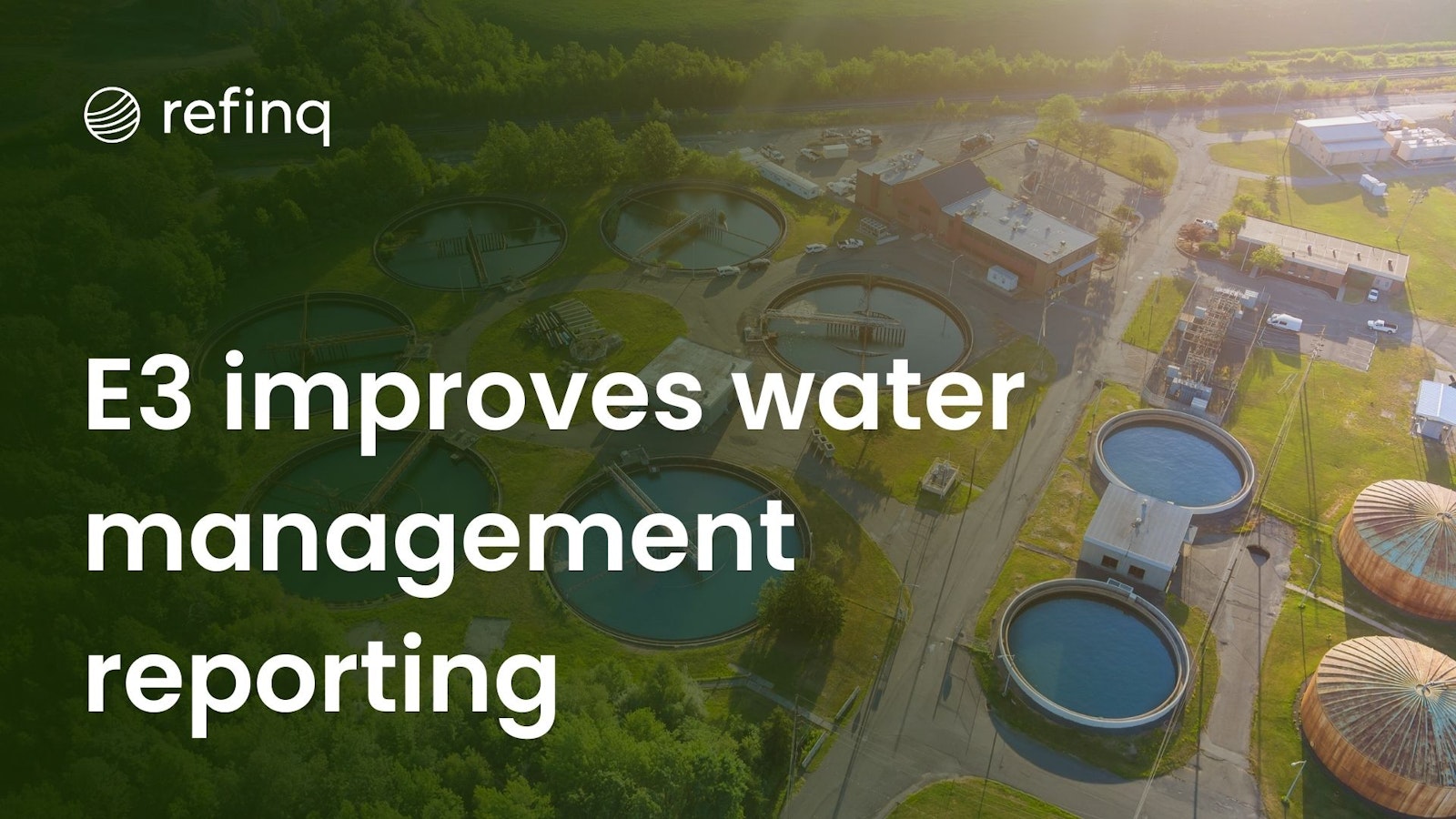

environmental sustainability has become a critical focus for businesses across the globe. With the rise in environmental regulations and the growing awareness around climate change, companies are looking for ways to manage their resources in a more responsible and efficient manner. One of the most pressing issues is water resource management. Under the European Sustainability Reporting Standards (ESRS) E3, businesses are required to adopt effective strategies to manage water resources and demonstrate their commitment to sustainability. Understanding how to navigate these requirements is key to ensuring compliance and optimizing water use in business operations.
ESRS E3 provides clear guidelines on how corporations should address water and marine resource management. Companies must report their water usage and take steps to reduce their impact on water resources through sustainable practices. These standards are designed to ensure that businesses are not only compliant with regulatory frameworks but also taking actionable steps toward sustainability. The integration of tools such as refinq allows companies to better assess and manage their environmental risks, including water resource management.
The European Sustainability Reporting Standards (ESRS) were introduced to help companies better report on environmental, social, and governance (ESG) criteria. These standards are part of a broader effort to align business practices with global sustainability goals. ESRS E3 specifically focuses on water and marine resources, providing guidelines for how companies should manage their water usage, measure their impact on water ecosystems, and report on their efforts.
ESRS E3 outlines specific requirements for businesses to assess and report on their water usage. Some key components include:
Integrating tools like refinq helps businesses perform detailed risk assessments and optimize their strategies for reducing water-related risks in their operations. By providing granular data, such as water stress levels in specific regions, refinq allows businesses to make data-driven decisions that align with ESRS E3 requirements.
Water is a vital resource for many industries, but its usage has significant implications for sustainability. As the global population continues to grow and climate change accelerates, the pressure on water resources has increased. Effective water resource management is now more crucial than ever. For businesses, this means not only minimizing their water usage but also ensuring that they do so in a way that supports local communities and ecosystems.
Businesses face numerous challenges when it comes to managing water resources. Some of the most significant challenges include:
To overcome these challenges, companies must adopt sustainable water management practices and continuously monitor their water usage and impact. Tools like refinq can provide businesses with detailed insights into their environmental footprint, helping them stay ahead of regulatory requirements and manage water resources more effectively.
Implementing best practices for water resource management not only ensures compliance with ESRS E3 but also contributes to a company’s long-term sustainability goals. Here are some of the most effective strategies that corporates can adopt:
Regular water risk assessments are essential for understanding how a business’s operations may impact local water resources. These assessments should cover:
Using tools like refinq allows businesses to assess their water-related risks with precision, leveraging geospatial analysis to understand the environmental risks in their specific locations.
Water efficiency measures can significantly reduce a company’s environmental footprint. Some strategies include:
Implementing these strategies not only helps businesses comply with ESRS E3 but also reduces operational costs in the long term.
Collaborating with local communities is key to ensuring that water management practices are sustainable. Companies should:
Through partnerships and initiatives, businesses can help alleviate water-related issues and demonstrate their commitment to corporate social responsibility (CSR).
Water resource management should extend beyond the company’s direct operations. Corporates must evaluate their supply chains and ensure that suppliers are adopting sustainable water practices. This can be achieved by:
Using refinq can help businesses assess the water-related risks in their supply chains, ensuring that all partners are committed to responsible water usage.
Technological advancements are playing a crucial role in helping businesses manage their water resources more effectively. Digital platforms and data analytics are enabling companies to make informed decisions about their water usage and environmental impact.
refinq is at the forefront of helping businesses manage environmental risks, including those related to water resources. By leveraging machine learning, geospatial analysis, and extensive environmental data, refinq provides companies with real-time risk assessments that are essential for managing water-related challenges.
With refinq’s ability to process billions of data points from earth observation models, businesses can gain insights into water stress levels, contamination risks, and future trends, allowing them to make proactive decisions about their water usage and sustainability efforts. Additionally, refinq’s platform aligns with international frameworks such as the Corporate Sustainability Reporting Standard (CSRD) and the Taskforce on Nature-related Financial Disclosures (TNFD), ensuring that businesses comply with regulatory demands while contributing to global sustainability goals.
Water resource management is an integral part of corporate sustainability. Under the ESRS E3 framework, companies must take a proactive approach to managing water usage, reducing risks, and ensuring compliance with evolving regulations. By adopting best practices such as water risk assessments, improving water efficiency, engaging with local communities, and ensuring supply chain sustainability, businesses can effectively manage their water resources.
Technological tools like refinq offer invaluable support by providing real-time insights into environmental risks, helping businesses navigate the complexities of water management and make data-driven decisions. By integrating these tools into their operations, companies can not only comply with ESRS E3 standards but also demonstrate their commitment to environmental sustainability, ensuring long-term success in an increasingly eco-conscious world.